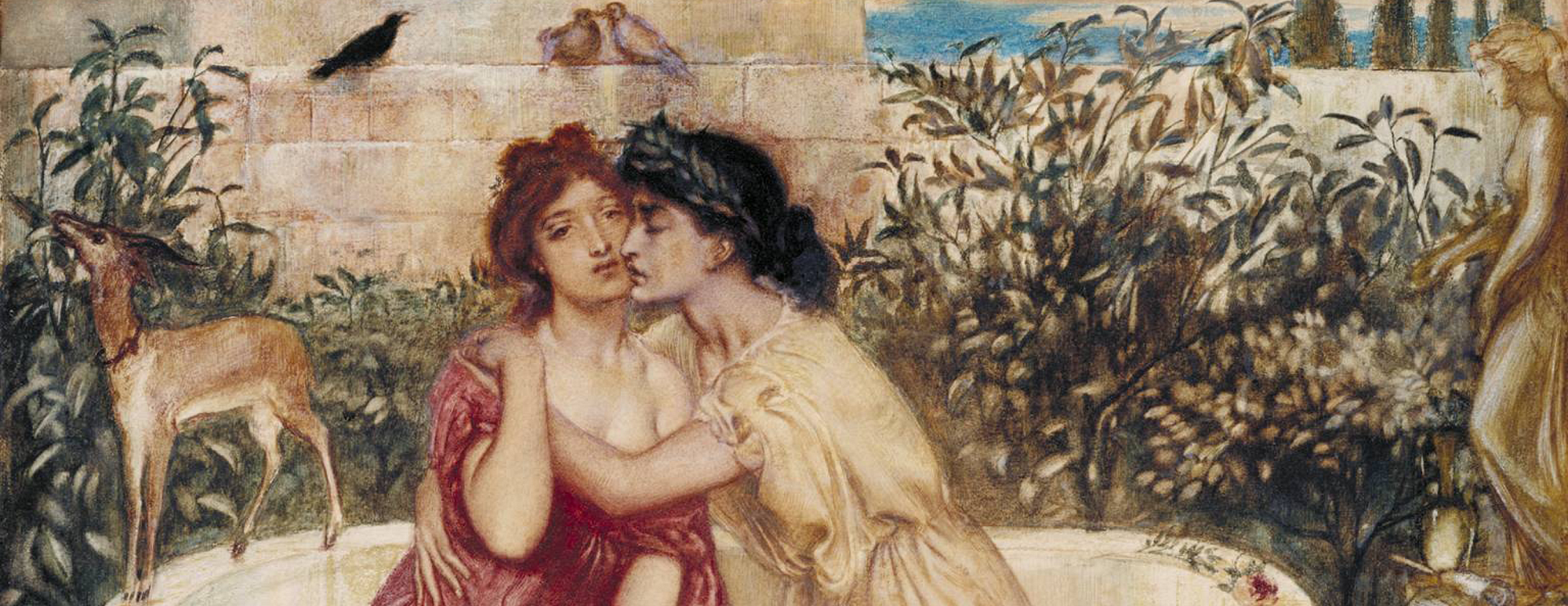He Is Like a God That Man

 This is the (an?) opening to Sappho's most famous poem 31 (one on the OCR Specification) in one rendering. I first came across the poem in Davidson's book, "The Greeks & Greek Love", in which Davidson offers a translation of the poem and some thoughts on how it radically shifts perspective.
This is the (an?) opening to Sappho's most famous poem 31 (one on the OCR Specification) in one rendering. I first came across the poem in Davidson's book, "The Greeks & Greek Love", in which Davidson offers a translation of the poem and some thoughts on how it radically shifts perspective.Davidson translates:

He comments:
Anne Carson's translation is exceptional
and she captures with her more lyrical language the force of the poem. We might compare, "puts the heart in my chest on wings" with the rather more pedestrian, "makes my heart thump"
The line "greener than grass" seems odd in combination with death, and you will find translations suggesting that we should instead think of the colour of grass in the hot mediterranean where it is bleached and pale.
You will notice in the Carson translation (left) the final line makes no sense and that this is a fragment of a possibly rather longer poem.
Tony Kline, whose translations you have met in the Augustus module, both uses the pale grass motif and drops as unwieldy the last fragmentary line.
Kline translates: (@PoetryInTransl

We are left in no doubt by Sappho of how love makes her feel and the symptoms of love and in this way she can see astonishingly contemporary.
Slyly, the speaker avoids physical description of the girl, instead evoking her beauty by detailing the effect it has on the beholder; the whole poem is a kind of reaction shot. The verses subtly enact the symptoms they describe: as the poet’s faculties fail one by one in the overpowering presence of her beloved, the outside world—the girl, the man she’s talking to—dissolves and disappears from the poem, too, leaving the speaker in a kind of interior echo chamber. The arc from “he seems to me” in the first line to the solipsistic “I seem to me” at the end says it all.
Even Red Dwarf are direct inheritors of her description of the symptoms of love:
Tongue-tied, cold sweat, feel like death... nothing in the human condition changes. That Sappho, a woman, admires not the man's beauty, but his composure when talking to the female object of her love reminds us of the envy we universally feel for those more at ease and more articulate than us when Eros is about.
 |
| https://sententiaeantiquae.com/2015/10/19/before-redbull-eros-gave-you-wings-alcaeus-plato-and-homer/ |
Amy Pistone
This universality and modern feel to Sappho has also provoked rather freer translations/adaptations of Sappho with a more explicitly modern twist. My favourite, which I came across recently, is by Amy Pistone (@apistone https://www.amypistone.com/)
It is clear that this translation is trying to do something other than a verbatim translation (though the inclusion of parallel Greek to give an illusion of authenticity to those brought up on Loeb texts is a particularly nice touch) and instead use and remake the poem for a modern readership.
I also like how the broken thought in the last line, with ellipses for effect, picks up the fragmentary line.
This is not a new development, the Roman poet Catullus also sought to use the poem (already centuries old and in Greek to his Latin) with a similar mixture of translation and free adaptation and he too made use of its fragmentary state. I borrow here a translation by Lauren Hunter (https://escholarship.org/uc/item/4nm542kj)
You will notice that Catullus too chooses to use the fragmentary end to move the poem's end to a new purpose.
What do we learn? Well most obviously never assume that any translation is "right" in any definitive way, they reflect choices and possibilities. In addition that the poetry and ideas of the past need not be studied as fossils, but can be used, reworked and enjoyed in new ways. I would add too that Sappho is a poet who, even in current fragmentary state, gives us reason to understand why Plato (perhaps Plato, the attribution is not certain) said:
For More on Plato see the excellent In Our Time episode.
Bibliography
Carson A., (2003), If
Not Winter, Virago Press
Davidson J., (2007), The Greeks and Greek Love, Phoenix






No comments:
Post a Comment